"Nada" Has Everything | A Tasteful Argentinian Mini-Series
I am so glad the poster kept popping up and I decided to finally give it a try. In the last years I can count with the fingers of one hand the number of good comedy films or series produced in Latin America. One of my recent disappointments was Viva Mexico! a disgusting and unnecessarily long film that should have never been made. That being said, I have watched great Argentinian movies recently (most notably Argentina 1985).
What persuaded me to download and watch Nada was not the presence of Robert De Niro in it (an unusual association); in fact, De Niro’s comedies are not precisely his best works. I did not know much about Luis Brandoni either, despite being one of the most solid Argentinian actors. I was intrigued by a couple of things in the trailer: the food and the presence of an actress that seemed important, but whose name or picture did not even show in the cast description of most websites.
That's right! That was my reaction too when I started watching the series and realized this Paraguayan young actress was stealing every scene and had been totally ignored by Google.
Her name is Maria José (Majo) Cabrera and her picture should be next to Brandoni's.
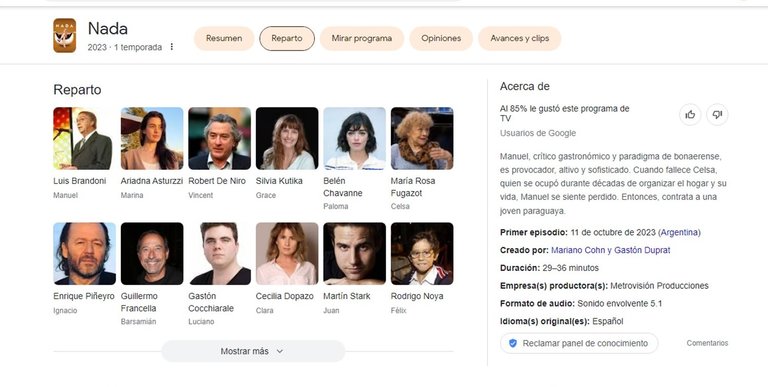
Nada is not just a comedy. It is also a drama that touches psychological, social and political wounds. It also provides a satisfactory denouement; a rather conventional taste which contains the ingredients to heal those wounds. Nada is an Argentinian gastronomy course; or rather a critique to Argentinian gastronomic notions.
As the protagonist himself says in a radio interview, he has been so many things that he’d say he is “nothing.” Exiled, backpacker, rugby player, Atheist, intellectual, cynic, food critic, and ultimately a trickster, Manuel’s role defies definitions, but at the same time provides a fresh reminder that we are, like him, difficult to define in one word or phrase.

Nada is the story of a downhill bohemian, food critic, and blocked writer who refuses to accept his declining conditions. Comfortably cared by his faithful and efficient maid, Celsa, Manuel is forced to peep out of his elitist bubble (he does not compeltely emerge out of it) and face life in all its tastes.
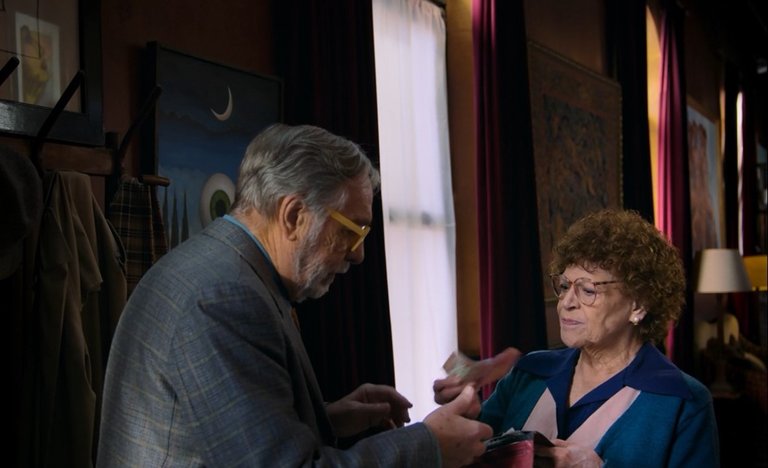
Celsa is Manuel’s faithful and extremely efficient housekeeper. Like a mother figure, she even gives him spending money for his daily outings. A privileged son of a politician, Manuel has no idea how the world works when it comes to handling his finances. Celsa has done everything for him for four decades.
Celsa becomes one of those unique characters in a story who after a short presence become a leading force for the rest of the characters and the story itself. Celsa’s absence is as powerful as her presence. Her carefully kept notes, which she registered in a notebook for four decades, become a vicarious extension of Fugazot’s performance.

Nada has a unique format in the presentation of every episode. De Niro's character provides the frame for every episode with hilarious explanations of culinary Argentinian idiomatic expressions:
Episode 1. Estar en el horno. “To be in the oven: To find oneself in a particularly compromising situation of very difficult resolution.”
Episode 2. Remar en dulce de leche. “To row in milk caramel. To put your energy into solving a problems that requires a great deal of effort.”
Episode 3. La verdad de la milanesa. “The truth about breaded cutlet. Revealing with moral superiority an unappealable truth that until now was kept hidden from others.”
Episode 4. Comerse un garrón. To eat a hoof. To go stoically although not voluntarily through a particularly annoying and or embarrassing experience.
Episode 5. Tirar Manteca al techo. To throw butter on the ceiling. To waste with crude ostentation something that one possesses in abundance.
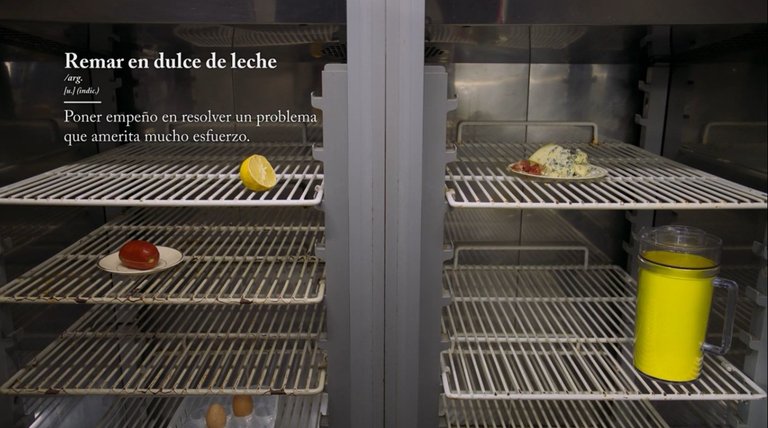
Every episode is summarized by these expressions, which progressively reveal every character's complexities.
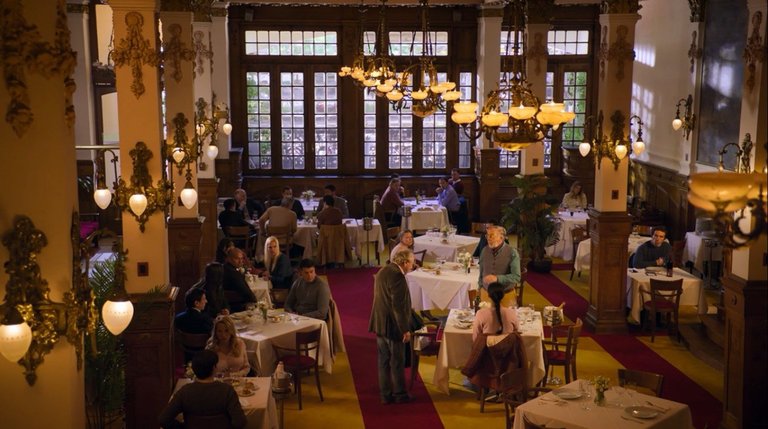
The Script and Casting
The script is a delight. Smart, sharp, funny, polemic and well-crafted.
The characters are well delineated and well casted. The main revelation is the character Antonia, marvelously performed by Majo Cabrera. The Paraguayan actress, like the spices defined by Manuel, is not a decorative addition or a supporting actress; she becomes co-star along the main ingredient of the series. She definitively contributes to turning the dish Nada into Everything we want to watch in a story. She steals the scene, or I’d say the series, with every subtle and unassuming natural performance. Her candid countenance and demeanor, makes Antonia a vital and unforgettable character.
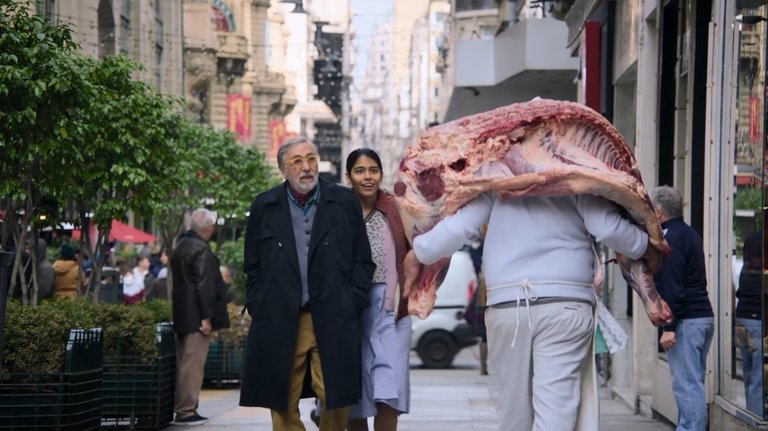
Antonia is a survivor; she is daring and clever, despite her naiveté. The two characters complement each other in more ways that meet the eye.
Antonia is not as organized and disciplined as Celsa, but her eagerness to learn and her spontaneity and irreverence makes her inspiring.

Antonia transforms Manuel to the point that at the end of the story she gets as a present the only thing Manuel was emotionally or sentimentally attached to, the one thing he refused to sell, despite his financial problems.
Manuel reveals to Antonia his tricksterish nature as well as his vulnerabilities and she teaches him to resolve his emotional constipation and embrace improvisation, detachment and the appreciation of simple things, like walking barefoot.

Unlike Ariadna Asturzzi, who does appear in a google search of Nada, Majo Cabrera does interact with Robert de Niro and that exchange provides one of the serie's funniest moments. It is a basic, very Latin American kind of humor, rooted in the trivialities of language, but Cabrera's performance feel authentic and poised.
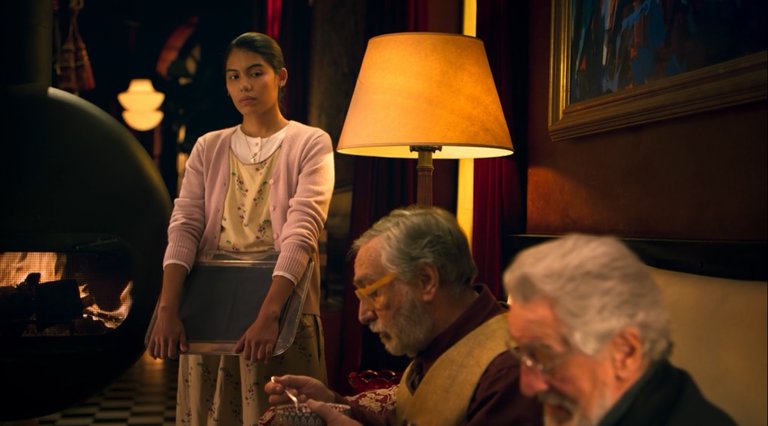
There is also the other kind of humor; the political and sophisticated one; the one that hurts sensibilities, but which, like a food review or a medical diagnosis, must be honest and uncompromising. Manuel does not renounce his intelectual snobbism or his dark fatalistic postures, but he soothens them with honest feelings of despair before the inevitability of death and the risks of having lived an inconsequential life; a life worth nothing. He leaves us with some priceless pearls of wisdom.

The creators of Nada threw butter on the ceiling.
As De Niro’s character concludes, the story shows that age and life experience no not necessarily correlate. Antonia’s character, the force behind Manuel’s change and behind the success of the story is young, but full of wisdom and vitality. Her desire to take risks, to willingly err and learn from mistakes and her faithfulness to friends and family, the really valuable things in life, makes her an endearing character and makes every other character in the story to gravitate around her.
Give Nada a try. You will not regret it.

Nada (2023)
Number of episodes: 5
Duration: about 30 minutes
Written and directed by Mariano Cohn and Gastón Duprat
Streaming service: Hulu / Star Plus
Top Cast:
Luis Brandoni as Manuel Tamayo Prats
Majo Cabrera as Antonia Noguera
Robert de Niro as Vincent Parisi
María Rosa Fugazot as Celsa
Silvia Kutika as Grace
Belen Chavanne as Paloma
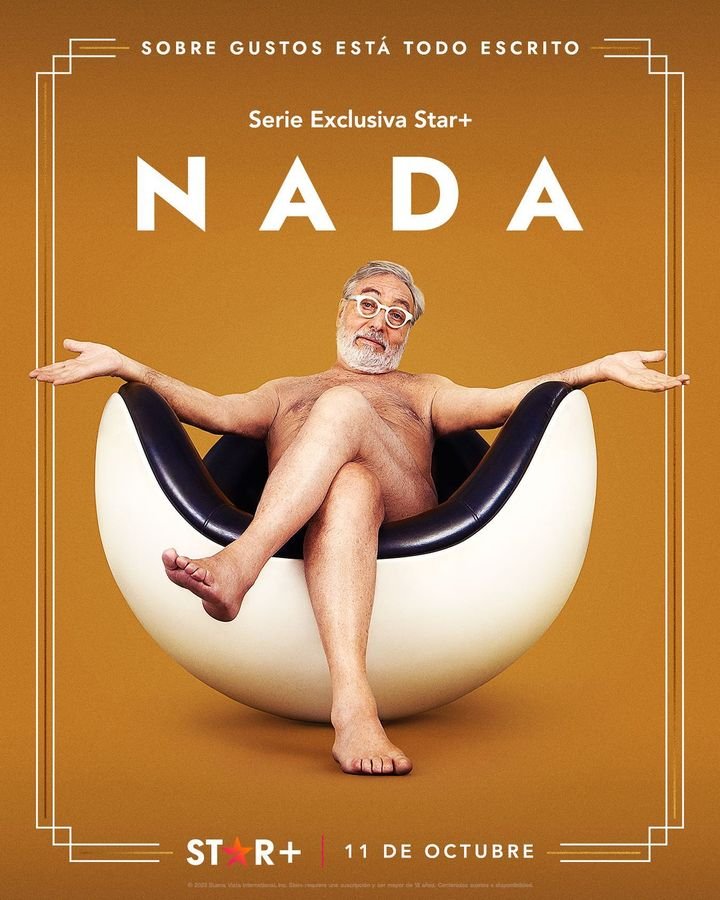

Me gusto mucho esta serie, soy venezolana viviendo en Argentina y la explicacion de Robert de Niro de todas esas frases tipicas argentinas me hicieron reir a carcagadas! su explicacion de la diferencia entre "boludo" y "pelotudo" fue simplemente genial jaja
🤣🤣
Yo tenía mucho tiempo que no me reía con una película o serie. Esta me hizo reír en muchas ocasiones. Fue genial, ciertamente.
Últimamente las producciones latinas han saltado la popularidad por su sencillez y por tocar especialmente a los espectadores.
Esta combina muy bien la sencillez de una obra íntima con cierta sofisticación en la producción. Manuel y Antonia son precisamente polos opuestos y sin embargo el resultado de la mezcla fue memorable
Congratulations @hlezama!
You raised your level and are now a Minnow!
Check out our last posts: